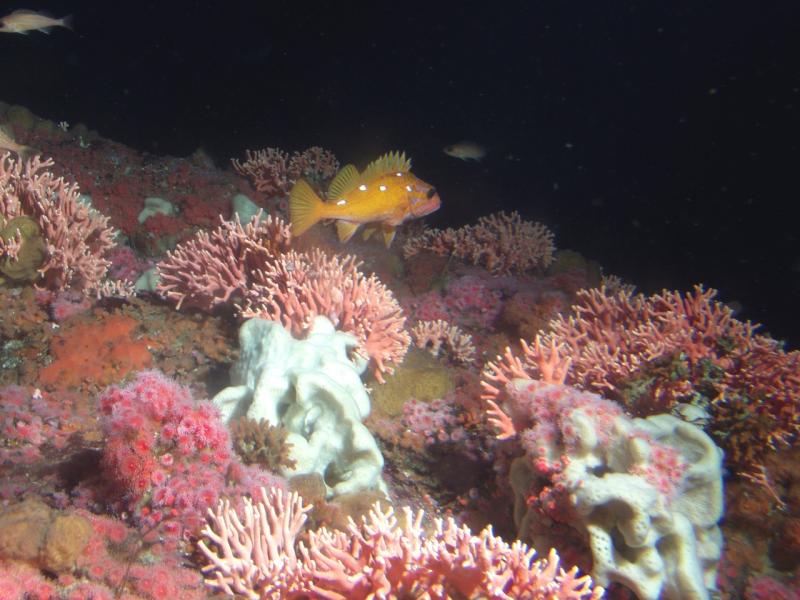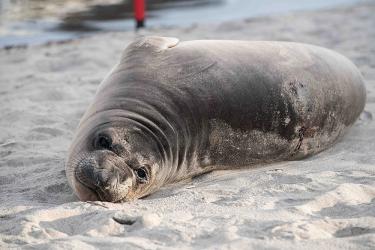When an unusually strong marine heat wave warmed the ocean off the West Coast from late 2014 to 2016, the effects reverberated through the marine ecosystem.
One of the telltale changes was in copepods, tiny crustaceans that provide essential food for juvenile salmon as they first enter the ocean. Instead of energy-rich copepods that help the fish grow quickly, leaner copepods with less energy began to dominate. That left young salmon facing tougher odds in the ocean.
In the following years, salmon returns fell to some of their lowest levels in a decade.
Deciphering, and even anticipating such ecosystem-level effects is a goal of a new plan produced by NOAA Fisheries’ West Coast Region. The Western Regional Implementation Plan for Ecosystem-Based Fisheries Management provides steps for helping West Coast fishermen and fisheries managers make sustainable business and conservation decisions that maximize the value of fisheries while protecting the ecosystems they depend on.

The plan supports growth of the American Blue Economy through research to understand how elements of the marine ecosystem interact and new tools to apply the information to fisheries management.
“This is about considering scientific information about resources, policies, and management in a different way than we have in the past, where we’re looking for and considering the way changes carry through the ecosystem in sometimes unanticipated ways,” said Yvonne deReynier, who managed development of the implementation plan.
The plan builds on efforts to understand changes throughout the marine ecosystem, such as the California Current Integrated Ecosystem Assessment reports delivered annually to the Pacific Fisheries Management Council (Council). Those reports provide an overview of changes, trends, and conditions across the California Current ecosystem, and some of the likely effects, such as how many salmon may be expected to return to West Coast rivers each year.
The WRIP builds on six national guiding principles for ecosystem-based fishery management that range from ecosystem-level planning to protecting the resilience of coastal ecosystems. NOAA Fisheries’ West Coast Region, and Northwest and Southwest Fisheries Science Centers, in partnership with the Council, have already been integrating ecosystem-level thinking into conservation and management of marine resources.
For example, in 2015, the Council recommended that NOAA Fisheries prohibit new fisheries on currently unfished forage fish species, recognizing the importance of forage fish that help support the marine food web. The Council also tightened restrictions on the types of fishing gear used off the U.S. West Coast so the Council would have a chance to consider scientific information on new gear types before they become widely used in the ecosystem.
More recently, NOAA scientists have been studying whether shifts in the ocean environment affect sea turtle distribution in ways that we can track and predict, with the benefit of reducing turtle bycatch in West Coast fisheries. Shifting climatic conditions affect all of our managed species, and NOAA scientists have also been looking at how changing winter snow and rain levels can affect downstream salmon migrations.
“The implementation plan gives NOAA Fisheries, its science and management partners, and the public an opportunity to better understand and more fully consider the links between marine species, humans, and the environment,” said Chris Harvey, a research fish biologist at the Northwest Fisheries Science Center who helped draft the Implementation Plan. “That will help us all make more informed and forward-looking decisions about marine resources.”



